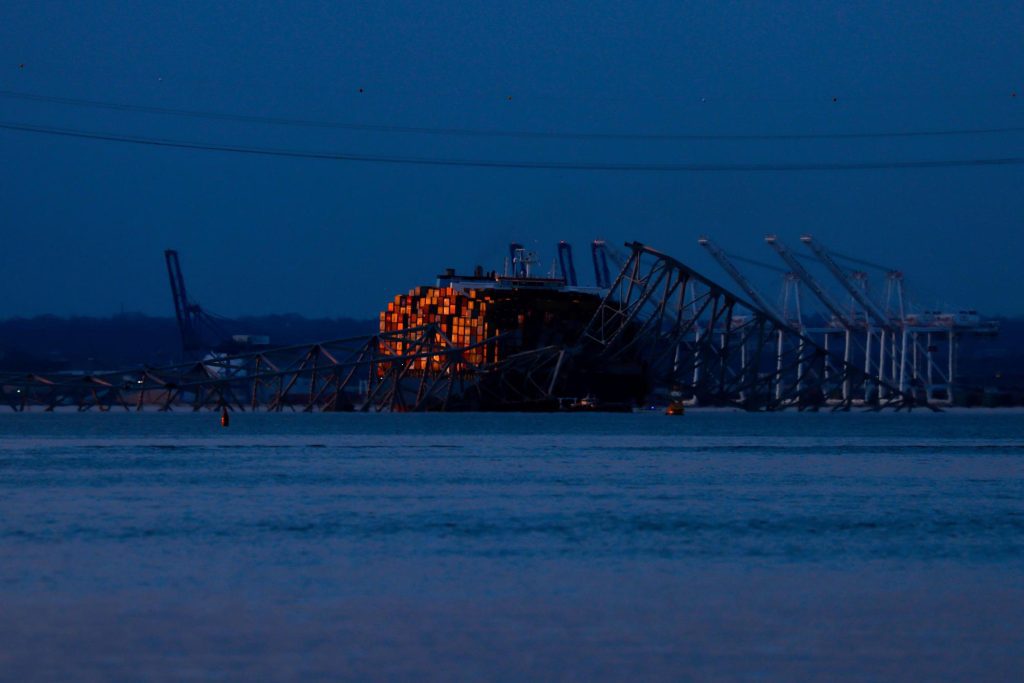By MICHAEL KUNZELMAN and REBECCA BOONE (Associated Press)
The owner and manager of a cargo ship that collided with Baltimore’s Francis Scott Key Bridge and caused its collapse last week have asked a court to reduce their legal responsibility for the tragic event.
The companies’ request to limit their liability is a standard but important step in U.S. maritime law cases. A federal court in Maryland will determine who is at fault and how much they must pay for what could be one of the most expensive disasters of its kind.
Grace Ocean Private Ltd., based in Singapore, owns the Dali, the ship that lost power before hitting the bridge last Tuesday. Synergy Marine Pte Ltd., also based in Singapore, manages the ship.
They want to cap their liability at about $43.6 million, based on the value of the ship and its cargo, minus expected repair and salvage costs.
The companies are using a provision of an 1851 maritime law to seek limited liability, which has been used in the defense of many significant maritime disasters, according to James Mercante, an attorney with extensive experience in maritime law.
“This is the first step in the process,” Mercante said. “Now all claims must be filed in this proceeding.”
Morningstar DBRS, a credit rating agency, predicts the Baltimore bridge collapse could result in the most expensive marine insured loss in history, with estimated total losses of $2 billion to $4 billion.
Eight people were working on the bridge when it collapsed, leading to two rescues, two recovered bodies, and four missing and presumed dead.
The Port of Baltimore, a major shipping port, was closed due to the wreckage, potentially resulting in hundreds of millions of dollars in lost labor income for the area over the next month.
Rebuilding the collapsed bridge may cost at least $400 million or as much as twice that, depending on the new design.
The money families can receive for wrongful death claims in maritime law cases depends on various factors, including the potential financial support the deceased would have provided to the family, as well as funeral expenses.
Wrongful death damages may also cover funeral costs and the “loss of nurture,” which represents the value of any emotional, spiritual, or practical guidance the victim would have provided to their children.
___









